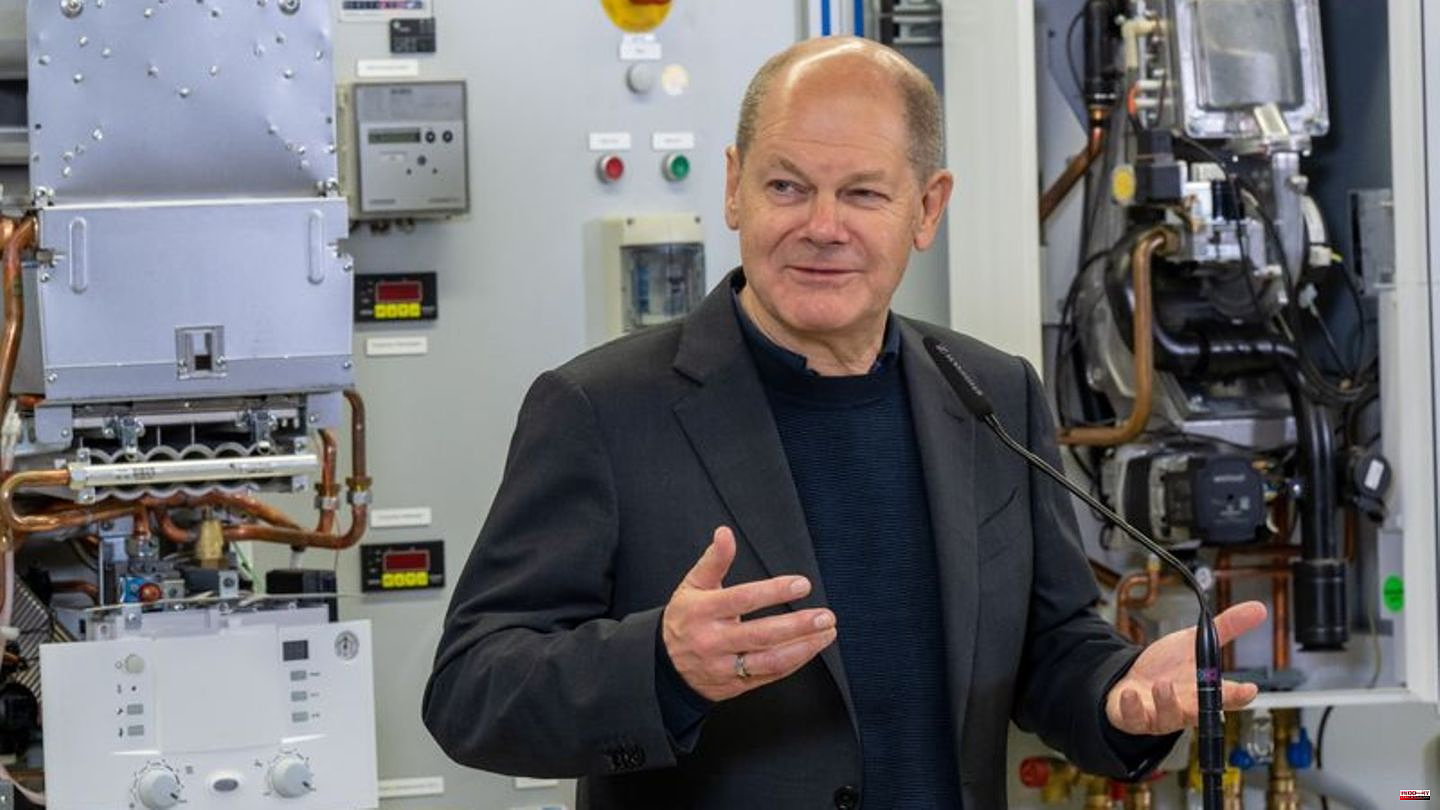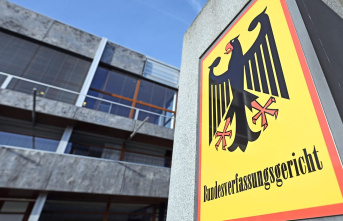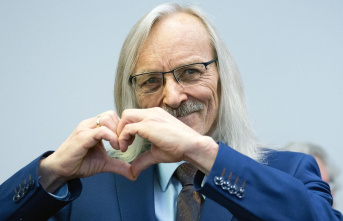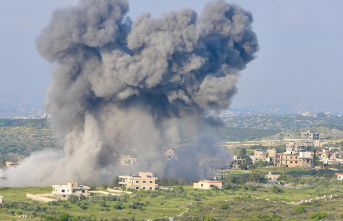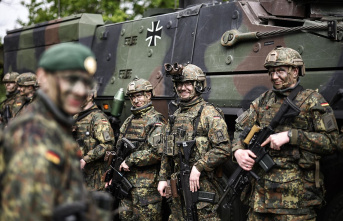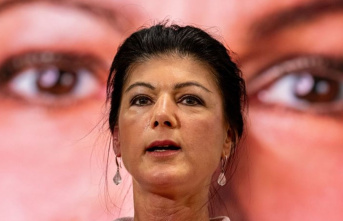Citizens and smaller companies in Germany can possibly hope to benefit from the planned gas price brake earlier than in March. Chancellor Olaf Scholz (SPD) announced on Saturday that he wanted to explore a possible earlier start date of January 1st and discuss this with the energy suppliers. "This will only succeed if we join forces in Germany," he said after a meeting with craftsmen in Munich. "We're organizing it right now to discuss how it's going to work."
At the state party conference of the Bavarian SPD, Scholz assured citizens and companies of the full support of the federal government in cushioning the high energy prices. "That's the message to the citizens: Everything has been done so that we can support them. And we will do it," he called out to the delegates.
The commission of experts set up by the federal government had proposed a one-off payment in December for private gas customers and small companies based on the advance payment in September. The actual price brake should come in January for industrial companies and for private households and small companies from March if possible, or April at the latest. On Friday, the Prime Ministers' Conference called for the gas price brake to be introduced as early as January 1st.
Scholz: No decision without a supplier
Scholz ruled out a decision on an earlier start date for the gas price brake on January 1 without prior consultation with the energy suppliers. At the same time, it expressed optimism that the price brake will soon be approved by the EU: "We are very confident that we will finally get the go for our support services in the next few days."
Bavaria's Crafts President Franz Xaver Peteranderl had previously demanded: "Just like industry, we need this price cap as of January 1st." In his reply, Scholz assured: "We go through it all five times a day." However, the Chancellor qualified: "What we don't do is decide that it will work on January 1; and then the companies that have to produce it, the utility companies, say that it won't work."
At the SPD state party conference, Scholz later said: “We will use a lot of money to ensure that the electricity price brake and gas price brake ensure that the prices remain affordable for companies – large and small, for the citizens – for as long as otherwise they are too high."
The federal government created the opportunities for this at European level and in Germany in good time, for example by the Bundestag launching the economic and stabilization fund on Friday, said Scholz. With 200 billion euros, this will help "to relieve the burden on citizens, companies, small and large, so that we can get through this time together".
Klingbeil: Rapid consultation of the Bundestag in November
SPD leader Lars Klingbeil said in an interview with Deutschlandfunk that the advance payment proposed by the expert commission in December and subsidies from March 2023 fall short: "What are we actually doing in the January/February phase," he asked. "Don't you have to find something to give the companies and, above all, the citizens a little more help?" That will occupy the Bundestag "in short, quick deliberations in November".
The SPD parliamentary group leader Rolf Mützenich told the editorial network Germany about further help as a financial bridge to the planned gas price brake in March: "We will check whether there is more to do." The most important instrument is the price cap on 80 percent of gas deliveries from March. According to Mützenich, the SPD parliamentary group wants to create relief for users of oil and pellet heating systems that is comparable to that which is being considered for gas customers in December.
Craft wants "hardship bridge" for January and February
Craft President Hans Peter Wollseifer told the "Neue Osnabrücker Zeitung" that the expert commission's proposals were good, but too little and too late for energy-intensive companies. "Then holding out until March without help - many companies can't do that," he warned. "We have to build a hardship bridge for January and February. Our proposal is that the state pay half of the deduction for electricity and gas for January and February." This would work similarly to taking the December haircut. Bakers, confectioners, butchers, brewers, electroplaters, surface finishers, textile cleaners and car workshops are particularly affected.
The Federal Association of Medium-Sized Businesses is demanding relief from high gas prices as early as January. "A one-off relief in December is not enough, and an effective gas price brake must also apply to medium-sized companies from January," said Markus Jerger, chairman of the association, to the newspapers of the Funke media group. The association expects that the federal government will clarify this by the time Scholz participates in the Prime Ministers' Conference on November 2nd.

